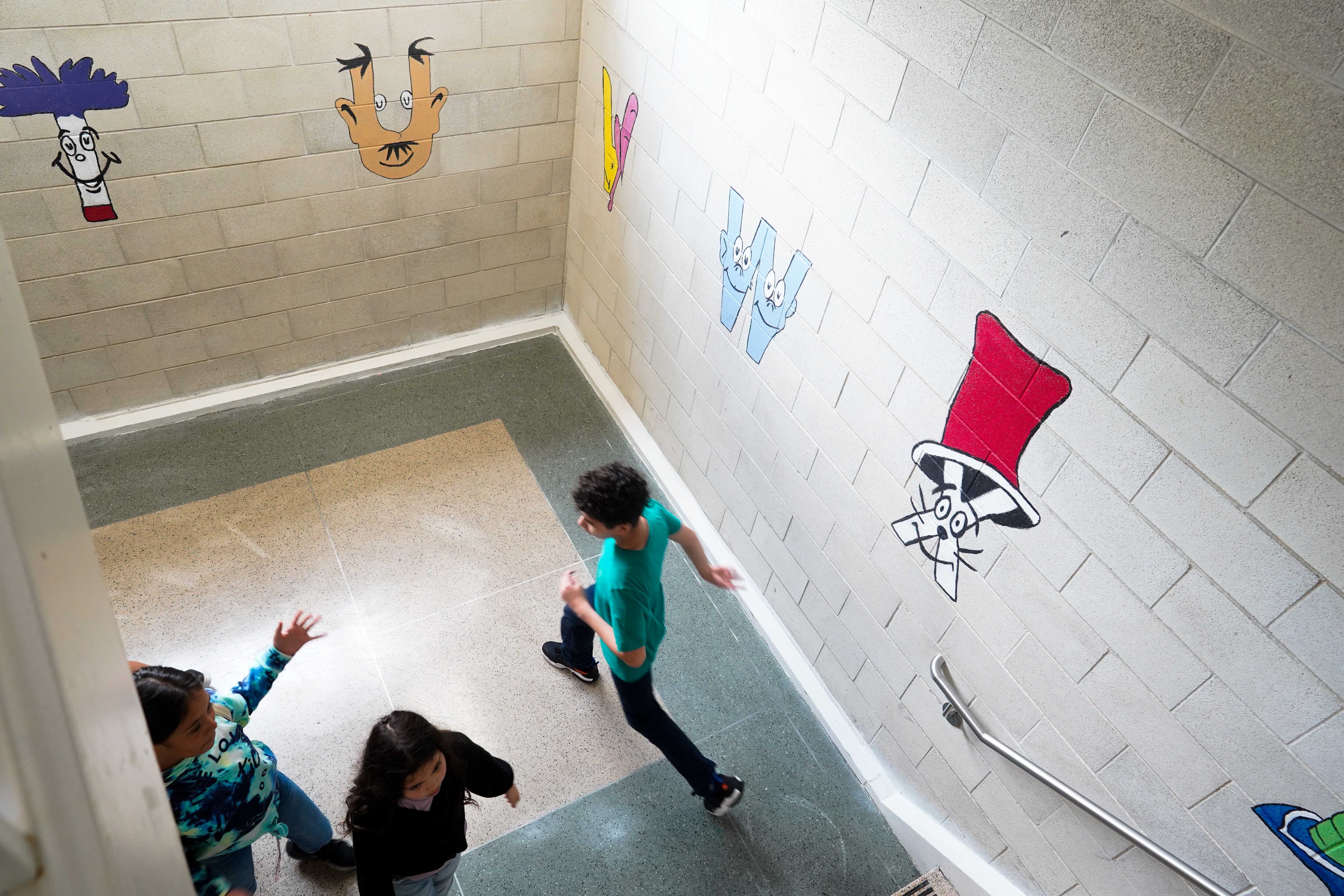Chicago Public Schools students made encouraging gains on the Illinois state test this year, with reading proficiency almost back to pre-pandemic levels and a more modest recovery in math scores, according to preliminary, unofficial scores obtained by Chalkbeat.
The portion of Chicago students in grades three through eighth who met or exceeded state standards based on the required Illinois Assessment of Readiness, which was administered this past spring, dipped in both subjects during the pandemic. This year’s rebounding on the English language arts test extended to all racial groups in the district, even as the gaping pre-pandemic disparities in proficiency Black and Latino students face persisted.
Overall, 26% of students who took the reading test this year met or exceeded state standards — just two percentage points lower than results on the 2019 test, the last one before COVID upended learning. In math, 17% of students scored proficient, compared with 24% in 2019.
The results were obtained by Chalkbeat ahead of the state’s formal release of district-level and statewide results in late fall and could shift as officials vet them.
Some experts who reviewed the scores said the gains are heartening, particularly against the backdrop of testing data nationally that has pointed to a slow or stalling recovery from the pandemic’s profound academic damage. They voiced concern about lower reading scores for Chicago’s third graders — a year considered a crucial predictor of later academic success — and for the district’s English language learners, a student group hit particularly hard by the shift to remote learning.
Experts caution that the results do not offer an apples-to-apples comparison to the eve of the pandemic. Based on participation data, many fewer students took the test this year in Chicago, which saw major enrollment drops during the pandemic. Experts note it’s possible that the district lost some of its most vulnerable students amid COVID’s upheaval.
District officials said this spring that they were encouraged by various academic data and feedback from campuses suggesting that the 2022-23 year saw more momentum in the district’s efforts to help students bounce back academically. They have credited new programs, including an in-house tutoring corps and intervention teachers who work with struggling students one-on-one or in small groups, as well as a push to roll out quality curriculums and teacher professional development on all its campuses.
“Now, early signs in our state assessment data are also showing positive results that our community can be proud of,” the district said in a statement. “While assessment results will not be finalized until later this year, preliminary data show that our investments in intentional supports for educators and students are yielding results.”
The district noted it considers helping students recover from the pandemic’s social and emotional fallout just as important as supporting their academic recovery, and it touted $35 million it is spending this coming school year on a social-emotional learning curriculum, mental health services, and additional social workers and counselors.
The state test score gains come after a challenging 2021-22 school year, when COVID surges, staffing shortages, and other disruptions hampered recovery efforts. In 2022, Illinois proficiency levels in the district dropped to 15% in reading and about 20% in math, amid statewide dips in the portion of students meeting standards.
Experts such as Marianne Perie, the director of assessment, research, and innovation at the nonprofit WestEd, say that across the country, the pandemic damage has been deeper and the recovery slower in math than in reading. That’s not surprising, Perie said.
“If you are a parent at home with your kids, it’s easier to sit down and read a book,” she said. “It’s much harder to do math with them.”
On National Assessment of Educational Progress results released last year, Chicago Public Schools saw a decade of math gains on the test vanish, even as scores dipped only slightly in reading — a change not considered statistically significant. The makers of that exam, known as the “the nation’s report card,” work with a sample of students designed to minimize the effect of demographic and enrollment shifts.
On this year’s Illinois Assessment of Readiness, 17% of Black students scored proficient in reading and 7% in math — compared with 54% in reading and 52% in math among Asian American students, the district’s highest-performing group on the state test.
Among students with disabilities, proficiency levels looked comparable to those pre-COVID: Only 4% met state expectations in math and in reading. Among English language learners, 9% met reading standards and 6% did so in math — proficiency levels that remained farthest behind from pre-pandemic results among student groups.
The portion of students who scored in the lowest of five categories — “did not yet meet expectations” — remained markedly higher in both subjects compared to pre-pandemic results, with 27% of students in reading and 30% in math falling in that group.
Officials at the Illinois State Board of Education have previously cautioned against publicizing local state test results, which it shares with districts in the spring, ahead of their formal release in late fall. They have noted that these results are still subject to vetting, and lack important context without statewide data. Last year, preliminary Chicago Public Schools results Chalkbeat obtained and published were identical to data the state eventually released.
Perie noted that few states have released 2023 achievement data, so it’s hard to say if Chicago’s results signal a broader uptick in recovery, or if the district is something of an outlier. Overall, national data so far has been troubling, suggesting the country is years away from helping students recover academically.
“These results are encouraging,” she said. “It’s great news that Chicago students appear to be recovering.”
Paul Zavitkovsky, an assessment specialist at the Center for Urban Education Leadership at the University of Illinois Chicago, also said the district’s scores show bracing gains across most grades. But like Perie, he flagged third grade scores, where both reading and math proficiency remained significantly lower than pre-pandemic. For this year’s third graders, the years when the bulk of reading skills are normally acquired were upended by the pandemic.
“The one really worrisome thing is the slowness of recovery efforts in grade 3,” he said. “Rising achievement levels in the primary grades are historically what’s driven overall achievement gains in grades 4 through 8 and beyond.”
Mila Koumpilova is Chalkbeat Chicago’s senior reporter covering Chicago Public Schools. Contact Mila at mkoumpilova@chalkbeat.org.







